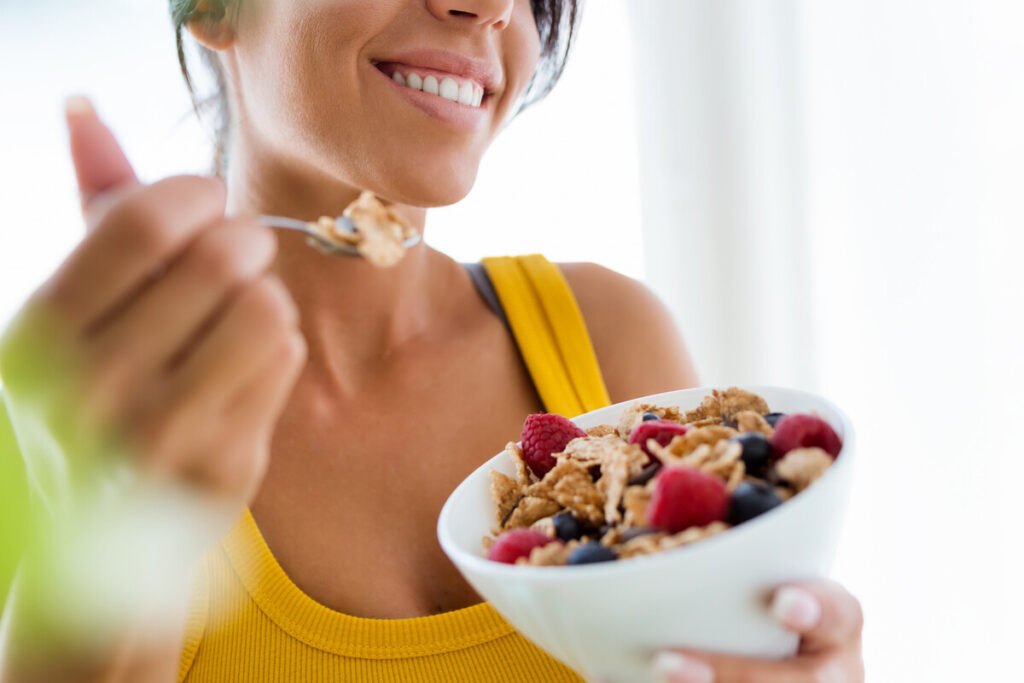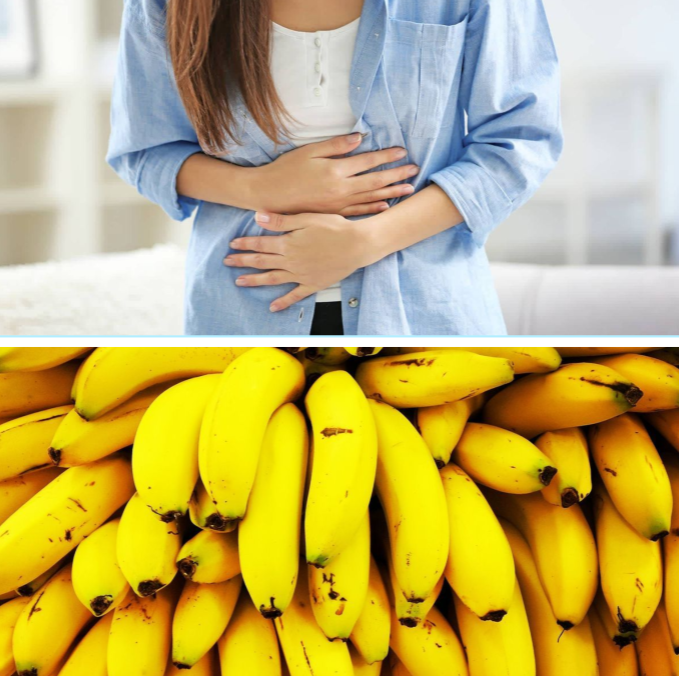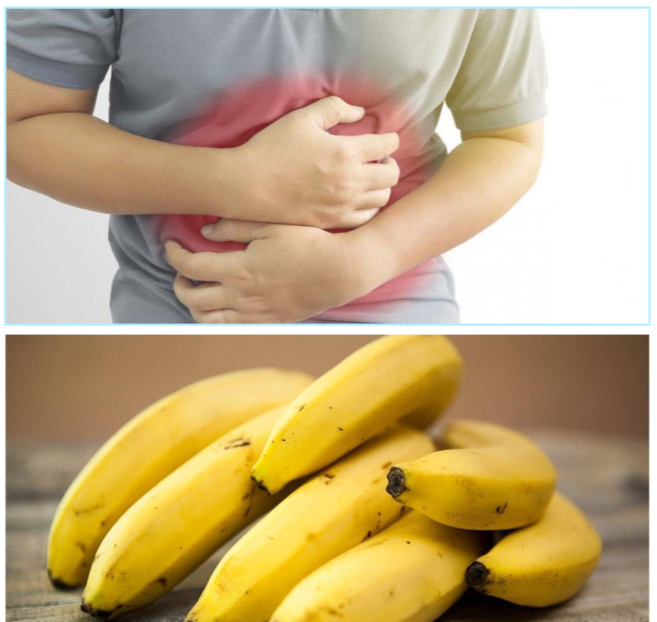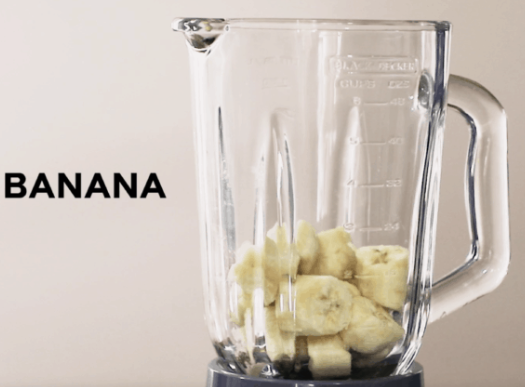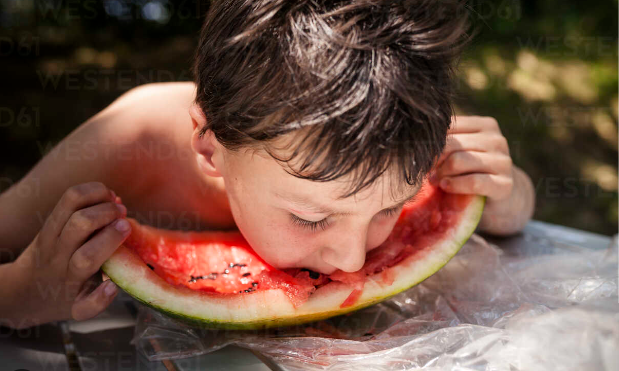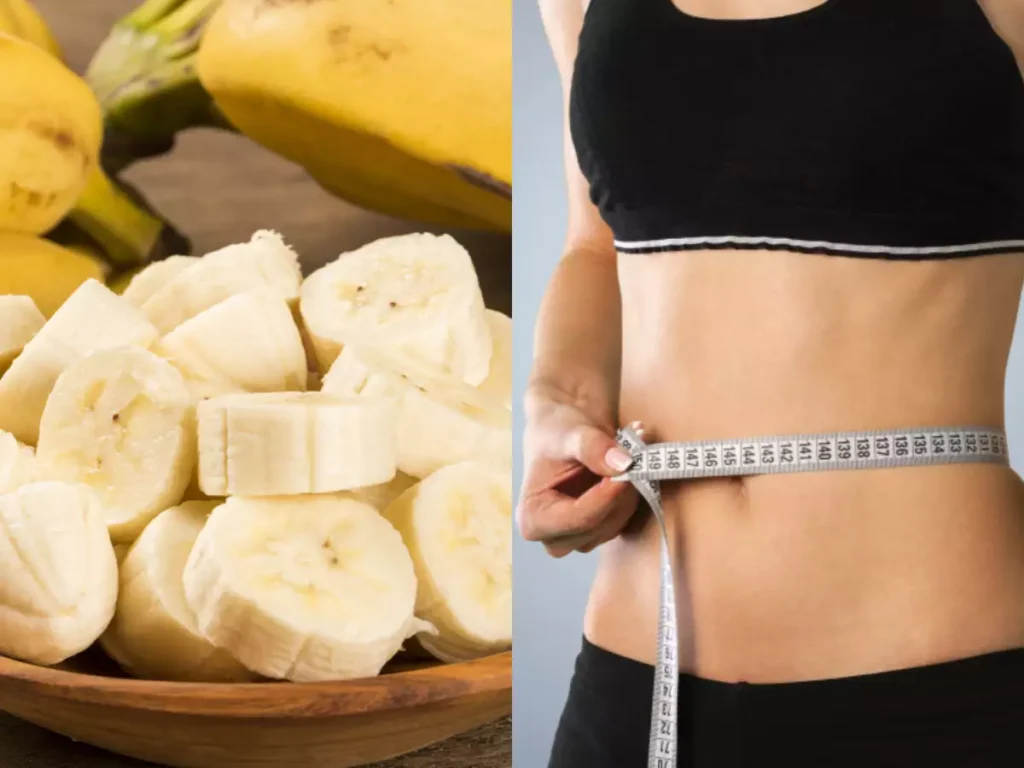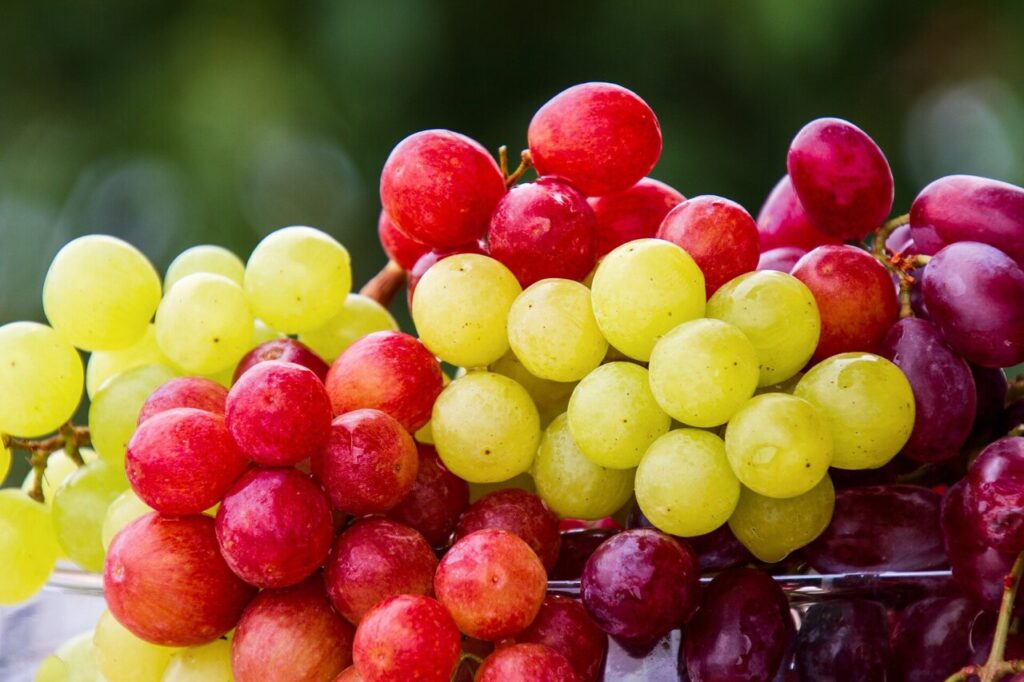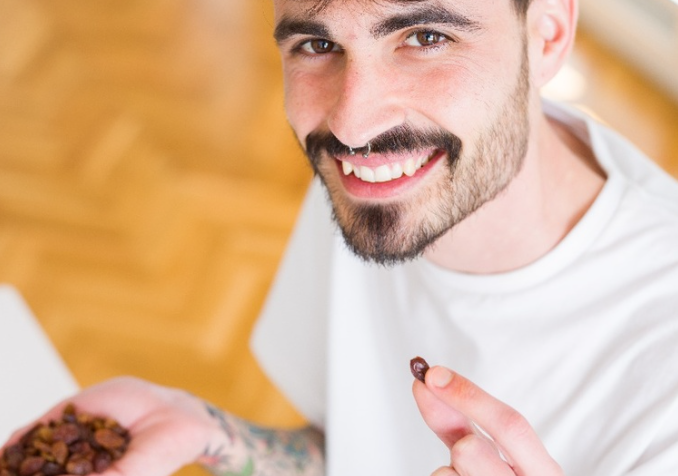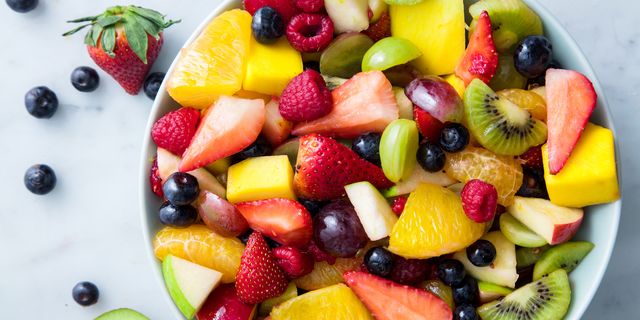Imagine it’s a sunny day and you’re eating a sweet, juicy slice of watermelon. It tastes so good that you start to think, “I wonder if my baby would like this too?” As a parent who loves their child, you naturally want to give them food that is not only tasty but also healthy. Introducing your baby to fruits like watermelon can be a great idea.
Table of Contents
- Nutrients in Watermelon That Are Good for Babies
- 1. Vitamin C
- 2. Vitamin A
- 3. Potassium
- 4. Lycopene
- 5. Magnesium
- 6. Thiamin
- When Is It Okay to Give Babies Watermelon?
- 4-6 Months Old
- 6-8 Months Old
- 9-12 Months Old
- Is Watermelon a Safe Choice for Babies?
- 1. Boosts the Immune System
- 2. Helps with Digestion
- 3. Keeps Babies Hydrated
- 4. Reduces Inflammation
- 5. Protects Eye Health
- 6. Encourages Growth
- 7. A Great First Solid Food
- Tips For Giving Babies Watermelon
- The Bottom Line
Nutrients in Watermelon That Are Good for Babies
Watermelon is full of nutrients that are good for babies. Here are some reasons why watermelon is a healthy choice:
1. Vitamin C
Watermelon gives babies plenty of vitamin C, which is important for their immune system. Just one cup can give a baby more than 15% of their daily recommended amount. Vitamin C helps babies grow strong and healthy.
2. Vitamin A
This vitamin is important for good eyesight, and watermelon has a lot of it. A cup of watermelon can give a baby around 15% of the vitamin A they need each day.
3. Potassium
Potassium is important for babies because it helps their muscles work and their nerves send signals. Watermelon has enough potassium to meet 4% of a baby’s daily requirements.
4. Lycopene
Lycopene is a strong antioxidant that gives watermelon its red color. It helps reduce inflammation and keeps growing cells healthy.
5. Magnesium
Magnesium is important for healthy bones, muscles, and enzymes in babies. Watermelon provides 4% of a baby’s daily magnesium needs per cup.
6. Thiamin
Thiamin, or vitamin B1, is important because it helps turn food into energy. By eating watermelon, a baby can get 2% of their daily recommended thiamin.
Watermelon is filled with a mix of vitamins, minerals, and antioxidants that are very important for your baby as they grow.
When Is It Okay to Give Babies Watermelon?
Parents often wonder when they can start giving their babies watermelon. Here are some guidelines:
4-6 Months Old
At this age, babies usually start eating solid foods besides just breast milk or formula. Watermelon can be introduced because it’s mild and easy to eat. Begin by mashing up some watermelon and give them a small taste on a spoon.
6-8 Months Old
By now, babies are ready for different flavors and textures. They can try small, soft pieces of watermelon that they can grab with their hands. Watch them carefully while they eat to avoid choking.
9-12 Months Old
Once a baby is 9 months old, they can typically handle larger pieces of soft watermelon. Cut the watermelon into strips or cubes without the rind. Babies can feed themselves these bigger chunks, but always keep an eye on them.
In general, babies can start trying watermelon between 4-8 months old. For bigger pieces that they can hold, wait until at least 6 months old. Start slowly with the first few tries to make sure there are no allergies or bad reactions.
Is Watermelon a Safe Choice for Babies?
Watermelon is safe for most babies to eat starting from about 4-6 months old, as long as you introduce it along with other foods. To make it safe, remove any seeds, and cut the watermelon into small, easy-to-eat pieces. Watermelon is full of nutrients and is also very hydrating, but always introduce it slowly and watch out for the risk of choking.
Aside from being nutritious, watermelon has lots of benefits for babies:
1. Boosts the Immune System
Vitamin C in watermelon is an antioxidant that can help strengthen a baby’s developing immune system. It guards cells against harm and sickness.
2. Helps with Digestion
Being mostly water, watermelon is easy on the stomach. The fiber in it helps with digestion and can prevent constipation.
3. Keeps Babies Hydrated
Watermelon’s high water content helps keep babies hydrated, which is especially good when it’s hot outside.
4. Reduces Inflammation
The lycopene and vitamin C in watermelon can reduce inflammation, which might lessen the risk of chronic diseases later on.
5. Protects Eye Health
The vitamin A in watermelon is good for sight and can help prevent eye issues as the baby grows older.
6. Encourages Growth
Ingredients like magnesium, potassium, and B vitamins in watermelon help with making proteins, creating energy and growing in general.
7. A Great First Solid Food
Its sweet, mild flavor is good for babies starting solid foods. It’s easy to mash or cut into little pieces they can handle.
Watermelon is a fantastic early food to give to babies once they’re ready to move on from milk. It’s tasty and packed with the nutrition that babies need.
When you give your baby watermelon, remember these safety tips:
- Choking Hazard: Babies under 4 years old could choke on foods like watermelon. Make sure to cut it into small pieces that are easy for them to eat. Remove the seeds and the hard rind, too.
- Allergies: Watermelon is generally safe, but you should still watch for any signs of an allergic reaction when your baby tries it for the first time.
- Some babies might be allergic to watermelon. Pay close attention for any allergic response after they try it for the first few times.
- If the watermelon isn’t organic, the skin could have pesticides on it. Always peel the skin off before giving it to your baby.
- Watermelon is sweet because it has sugar in it naturally. Don’t give your baby too much; it can cause upset stomachs or diarrhea.
If you’re careful when preparing watermelon, watching your baby while they eat, and not giving them too much, watermelon can be a good treat for your baby.
Tips For Giving Babies Watermelon
Here are some helpful hints for when you want to give your baby watermelon:
- When your baby is between 4 and 8 months old, give them just a little bit of mashed watermelon to start with, and watch out for any allergic reactions or tummy troubles.
- Only give your baby the inside part of the watermelon. Take the green outer skin off first.
- Get rid of the seeds because your baby could choke on them.
- Chop the watermelon into tiny strips or small bits instead of big pieces.
- If your baby has just started eating solids at around 6 months old, smash or blend the watermelon for them.
- Always watch your baby while they eat. If they start to choke, you need to be ready to help. Itake itnclude other fruits and veggies in your baby's meals for a mix of flavors and textures.
- Keep in mind that watermelon is sugary. Your baby should only have a couple of small pieces a few times a week.
- Until your baby has back teeth for chewing, make sure pieces of food are soft enough for them to eat.
- If you have any leftover watermelon, put it in the fridge within 2 hours and use it in the next 3 days. Throw it away if you see mold or if it smells funny.
Watermelon can be a tasty and nutritious option for babies when served properly. Introducing it into your baby’s diet can be fun as they explore and enjoy the sweetness of this refreshing fruit.
The Bottom Line
Watermelon is often a good first food for babies who are ready for solids, typically around 4 to 6 months old. It’s full of helpful nutrients like vitamins C and A, potassium, and lycopene. Babies usually like the gentle, sweet taste of watermelon.
This fruit is great for your baby’s immune system, keeps them hydrated, and can help their digestive system. Just remember to slowly add it to their diet and keep an eye out for any reactions or choking hazards. As a whole, watermelon is a yummy extra food that is safe for babies when given in moderation. Offer it along with a variety of other fruits and vegetables as your little one explores new foods and textures.
